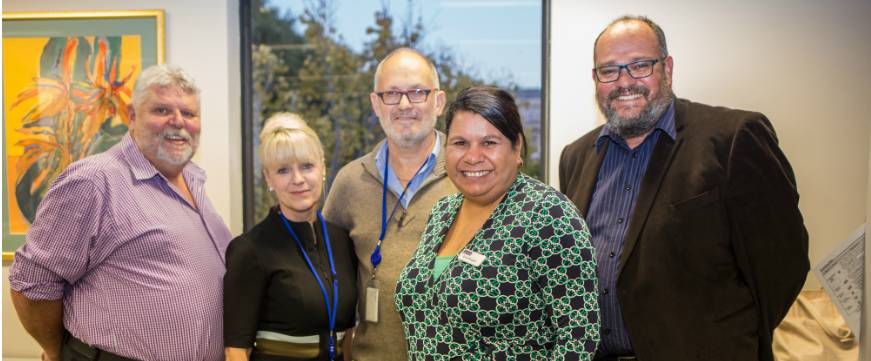
Assessment for Indigenous learners
Research 23 Feb 2016 4 minute readThe ACER event on Indigenous learning assessment, held in 2015, brought together four panel members from different education sectors.
ACER Principal Research Fellow in Indigenous Education Tony Dreise outlined some of the challenges faced in providing suitable assessment for Indigenous students.
Mr Dreise said we are good at measuring the size of the gap, but need to know more about how to close it. There is insufficient attention to ‘strengths based’ teaching and learning, where the assessment informs where the student is at, in order to then focus on continual improvement from that point.
‘At a micro level, it’s about more than a fail or pass. At a macro level, it’s about more than closing the gap,’ Mr Dreise said.
According to Mr Dreise, more could be done to include Indigenous perspectives in all assessment material, for example with culturally relevant material or customised resources.
‘Let’s not forget the enormous diversity in Aboriginal and Torres Strait Islander learners. The stereotypical Indigenous learner is nonsense,’ Mr Dreise said.
‘The first language of an Indigenous student might be Standard Australian English, Indigenous English or another Indigenous language.’
Assessment needs to be organically based, not event based, according to Mr Dreise. This formative assessment begins with testing what a student knows. The teacher can then teach based on this information, with data and growth at the heart of what they do.
Mr Dreise said we need to be thinking more broadly about assessment for all students. This would include being more committed to the notion of personalised learning, working with a growth mindset.
This may include strategies such as Indigenous learning plans, clear goal setting and instruction, mixed pedagogy and building confidence.
Professor Mark Rose, Director of Indigenous Strategy at La Trobe University in Melbourne, prompted a discussion about how Aboriginal students learn best through relationship. He cited the example of a Deakin University online student advice system that uses a personalised dashboard to aggregate essential information for students in response to their queries, providing answers in natural language. Professor Rose said similar interactive principles could be translated into assessments.
Mr David Tout, ACER Manager of Vocational, Adult and Workplace Education Services, said technology was one way forward, and discussed ACER’s success with targeted, online, computer-based assessments, especially utilising interactive styles of responses. Students have responded well to the tactile, flexible and more relational format available on tablets, Mr Tout said, noting that this format can benefit both Indigenous learners and other groups.
‘The more we can build in visual and oral components, listening, watching and responding on computer, the better,’ Mr Tout said.
‘There is an enormous challenge of how to assess appropriate to each cohort, whatever that cohort is. Teachers need to learn to use lots of different ways of assessing. The assessment system has to change from traditional paper-based tests.’
Jenny Herbst, Head of Careers and Indigenous Support Coordinator at Trinity Grammar School in Melbourne, said assessment for Indigenous students is not one size fits all. Participants in Indigenous programs at Trinity Grammar are on a range of pathways – VCE to university, external programs, individual learning plans and AFL traineeships.
Ms Herbst also shared information about the recently established Melbourne Indigenous Transitions School, which is now operating with its first student intake, and outlined how the school aims to help remote and rural students transition to take up scholarships at one of more than 20 city partner schools.
Further information:
This story originally appeared in the ACER Indigenous Education Update.
